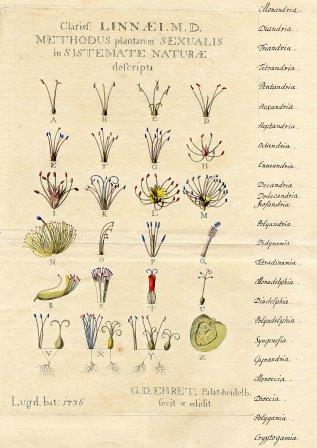|
Too late, the proofreader realizes he’s made a terrible mistake. He thought it was Wednesday. He was wrong. Its Thursday. If he’d known it was Thursday, he wouldn’t have left his car parked in front of the house. If he’d known it was Thursday, he would have parked his little Audi in the next street, just like he has done for the last seven or eight months. Why does he park his car in the next street on Thursdays? Because Thursday is the day his sister, a sales rep for a soft drinks company, visits a number of customers in the proofreader’s area. Thursday is the day his sister drops by in search of coffee and conversation. It isn’t that he in any way dislikes his sister; not at all. In fact, he loves Bonnie; she’s fantastic. He couldn’t hope for a better big sister. It’s just that once she starts talking she just can’t seem to stop. This would be fine if it was a Friday evening or a Saturday afternoon. But it isn’t Friday evening, and it isn’t Saturday afternoon. It’s Thursday afternoon. And not just any Thursday afternoon. It’s the last Thursday afternoon of the month, which means he’s currently proofreading the latest edition of Botanical Bulletin, which is due to go to press in just a few days time. The proofreader loves and hates Botanical Bulletin in equal measure. He loves the fact that he gets paid handsomely to proofread it. He loves the fact that it’s regular work. He loves the fact that he gets on extremely well with the publication’s editor, Joanne Kirby. He hates the fact that, thanks to the likes of Theophrastis, Dioscorides, Pliny the Elder, Leonhart Fuchs and Linnaeus he has to hack his way through the dense forest that is botanical nomenclature. Botanical Bulletin is a serious publication. Every plant, algae or fungi must be identified by its ‘correct name’ in accordance with the International Code of Nomenclature for Cultivated Plants. This means that the common daisy must be referred to as Bellis perennis, the sweet briar rose must be referred to as Rosa rubiginosa and the common dandelion must be referred to as Taraxacum officinal. Spell-checking software is of absolutely no use in this situation. The proofreader must lean heavily on his now-battered copies of The Cambridge Illustrated Glossary of Botanical Terms and Plant Names: A Guide to Botanical Nomenclature, as well as a host of online resources. When none of these prove helpful, he calls Joanne who refers him to one of the many botanists who contribute to Botanical Bulletin. It is, quite frankly, a colossal headache. The situation is manageable as long as the proofreader is able to give Botanical Bulletin the benefit of his full attention. This will not be possible if Bonnie sees his car parked outside and decides to invite herself in for caffeine and company. The proofreader lays down his read pen on the proofs for Botanical Bulletin and starts toward the front door. Maybe there’s still time to move my car, he thinks. He thinks wrong. The doorbell chimes. Click on Read More below to find out what the mistakes were. The Mistakes:
In the second paragraph, ‘Its Thursday’ should be ‘It’s Thursday’. In the third paragraph, ‘a few days time’ should be ‘a few days’ time’. In the fourth paragraph, ‘Theophrastis’ should be ‘Theophrastus’. In the fifth paragraph, ‘officinal’ should be ‘officinale’. In the sixth paragraph, ‘Botanical Bulletin’ should be italicized. The errors in the third and fifth paragraphs are really tricky, and may seem a little unfair. But most proofreading requires a little research. Whenever you come across a completely unknown word or name, just Google it. If it's spelled wrong (or is the wrong word or name entirely), you should be able to find out without much difficulty. There are other debatable issues. There is, for example, a fragment in the third paragraph. However, this is a novel (and an imaginary one, at that) and a certain latitude should be given when informal writing styles and structures are employed. For more free proofreading exercises, click here. If you spotted most or all of the errors, well done. You could very well have what it takes to become a proofreader. Why not take a look at our ridiculously inexpensive proofreading course. Click here for details.
0 Comments
Your comment will be posted after it is approved.
Leave a Reply. |
Details
Testimonials
“I am one of those many fools who paid a huge amount of money for a useless course. This book... has opened so many doors for me. I now look on Mike as my mentor as I embark on a career. Thank you Mike.” Emma Steel, Proofreader and International Structural Editor. “ I thoroughly enjoyed the course and am so glad that I decided to take it... the whole experience was invaluable. My proofreading service is now well established and your course played no small part in getting it off the ground.” Hache L. Jones, Proofreader. “I'd just like to thank you first of all for writing such a great, straight forward eBook, and then going above and beyond what I would even expect as a customer by providing us, completely free of charge, updated versions months later!” Rachel Gee, Trainee Proofreader. “What can I say? Worth every penny and then some! God Bless! This a fabulous course.” Teresa Richardson, Proofreader. “As someone who has effectively been proofreading for thirty years, I found Mike’s No-Nonsense Proofreading Course an invaluable introduction and a very useful practical guide to many aspects of this discipline. I can wholeheartedly recommend it as the ideal starting point, and much more besides.” Jeremy Meehan, Proofreader. Blog AuthorMy name's Mike Sellars and I'm an experienced proofreader and the author of The No-Nonsense Proofreading Course. Click here to find out more about me. The No-Nonsense Proofreading CourseA Fraction of the Cost of Other Proofreading Courses NOTE: Stock is currently limited to 10 per day, so we can continue to deliver exceptional after-sales service, answer queries and provide open-door support. Credit card and PayPal payments accepted. “As someone who has been proofreading for 30 years, I found Mike’s course an invaluable introduction and a very useful practical guide to many aspects of the discipline. I can wholeheartedly recommend it.” Jeremy Meehan, Proofreader. Still want to find out more? Click here. Proofreading Categories
All
Proofreading Archives
July 2024
|


 RSS Feed
RSS Feed
